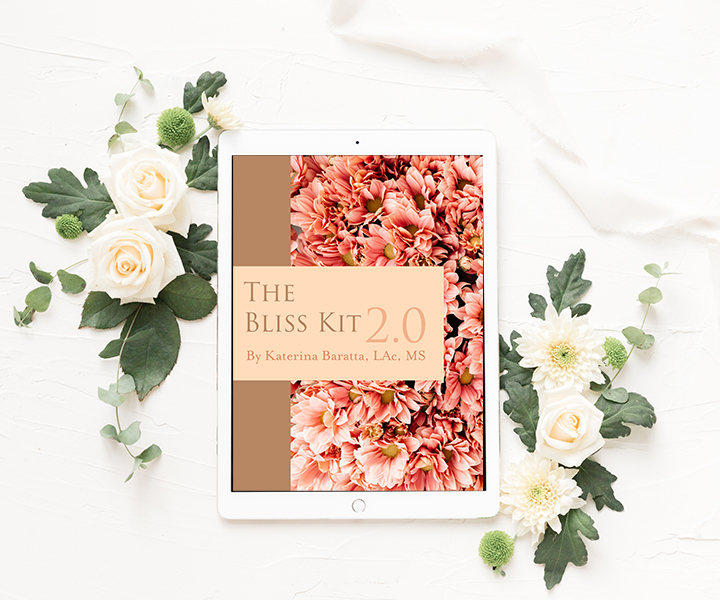On Awakening to Reality
Why do we suffer?
The answer is simple.
When we cling to what we think life should be, who we think we should be, we suffer.
But there is a deeper dimension in each of us that is not touched by suffering.
This is the constant.
This is who you really are, beyond thought, beyond emotion, beyond experience.
And this realization is available to you in every moment.
When you watch life’s drama through this vantage point, you know you are ultimately okay, regardless of how life looks on the outside.
When suffering is observed from this deeper dimension, it is transformed into a gift.
Because instead of identifying yourself with the story that’s being told, you can recognize the suffering for what it is: A sign that you are clinging again.
Then, suffering is no longer a bad thing.
Suffering is a symptom, pointing you toward the inner work that’s still left to do.
But how can you reach this this deeper dimension?
In truth, you’re already there, you just get distracted by the drama and forget yourSelf.
You think you are defined by the drama, when in reality you are the one watching it and interpreting the story.
Suffering is one of the best teachers to help you wake up to reality.
You only suffer because you believe something that is not entirely true.
And there are many teachings that can act as pointers to help you see this.
I am writing this as an attempt to provide one of those guideposts.
I hope you find it helpful.
I just went through a major transition in my life.
After 6 years of building my own practice while simultaneously caring for 2 small children, I got a full-time job working for someone else.
And I’ve experienced a bit of an identity crisis as a result.
My new title is “Content Marketing Manager.”
Day-to-day, I’m still writing articles (one of my great loves in life,) and planning social media and other outreach strategies, just like before.
But I’m promoting someone else’s services instead of my own.
Aside from the fact that I work in an office now and have less time to meet with clients, the biggest difference is that the topic of focus is productivity instead of holistic mental health and wellness.
It’s been a relief to discover that I’m enjoying it a lot.
I still get to sneak my expertise into the content, (next week, for example, I’ll be publishing an article on how to get better sleep in order to boost productivity, which is very similar to a series of articles I have on my own website discussing sleep and anxiety .)
But despite all of this, there have been moments of deep internal struggle.
If you had asked me, years ago, how I envisioned my life going, I never would have guessed I’d be working for someone else.
I grew up imagining that I’d “do great things,” and be a “self made” success.
Growing up in America as a privileged white Millennial, I believed the story that if you work hard and love what you do, the opportunities will come and the money will flow easily.
My imagination created an identity based off of these beliefs of who I would be and what I could do.
I imagined myself as a holistic healer, teacher, and writer, with thousands (nay, millions!) of grateful fans eager to pay high prices for my time.
And when reality didn’t match up to this imagination, it hurt.
A lot.
My mind came up with all forms of justification to soften the pain.
Surely my success would come in the future, it said.
I just wasn’t ready yet.
Another story my mind loved to cling to was that the kids were taking up too much time and demanding too much attention.
If only I had a house-cleaner and full-time nanny, then I’d be able to do the work I wanted to do and success would come easily.
This is what the mind does.
It creates stories to try to steer us away from pain.
But here’s what we don’t realize when we believe these stories:
The stories themselves are our source of pain.
And this is where suffering comes from.
Reality does not cause us to suffer.
It’s our thoughts about reality that cause suffering.
And it’s only when we wake up and see reality for what it is, and our thoughts for what they are, that we are able to transcend suffering.
After coming to this realization, the next thought that pops into your head is usually something along the lines of:
“Great! All I have to do now is control my thoughts and I’ll stop suffering.”
And you might have encountered famous teachers like the ones in the movie “The Secret,” who validate and encourage this belief.
(I know that I spent many, many years trying to control my thoughts, only to be ashamed at my “failure”.)
But clinging to the belief that you have to control your thoughts also leads to suffering.
Because thoughts are not controllable.
As Byron Katie often points out: “Apple.”
Did you see an apple in your mind?
Of course you did.
Banana.
Did you choose to see an apple and banana in your mind?
No.
They automatically appeared when you read the words.
It is true that you can temporarily direct your thoughts in a specific direction.
And the more you do, the more you strengthen the neural connections associated with that line of thinking, making it more likely you will think similar thoughts in the future.
This is why meditation, mindfulness, and gratitude are such powerful practices.
But you’re not consciously directing your thoughts most of the time.
Most of the time, your thoughts are conditioned reactions.
They are not chosen.
They are based on past learning, and they create images in your mind through which you interpret reality.
You are the receiver of these thoughts, not the thinker.
And because they are conditioned from the past, they reflect the past more accurately than the present.
But they don’t even do that very well, because memory is also just a thought.
And studies have shown that memory is easily manipulated and not very reliable.
Which means that when you view the world through the realm of thought, you are reacting to the world through the lens of an incomplete and inaccurate interpretation.
The thoughts you have about yourself are just as incomplete and inaccurate.
What you call your identity is actually just a collection of thoughts.
It is an image of yourself that’s been constructed based on past experience.
But the thoughts you have about yourself are not who you really are.
They are like a portrait painting.
Each thought you have about yourself is a brushstroke that gives form to an interpretation on the canvass of your imagination.
But while they construct an enticing image, they are not you.
When you cling to this image, you cling to a static interpretation of reality, not reality.
Thoughts are 2 dimensional, and easier to wrap your mind around.
So the natural tendency is to use thoughts as a compass to orient yourself in the world.
But reality is multidimensional, and much more nuanced than our minds can ever hope to comprehend.
We have 1st hand access to this great Truth when we allow ourselves to sink back into awareness itself instead of clinging to thought.
And when we do, we are finally able to appreciate life for what it is, not what we think it should be.
We are finally able to appreciate ourselves for what we really are, not what we think we should be.
Because who you really are is beyond thought.
And this realization is key to liberation.
The core of who you are can not be labeled.
I, for example, am not a holistic healer.
I am not a teacher.
I am not a writer.
I am not a content marketing manager.
I am not a mother.
I am not a woman.
These are all experiences I am having in the world, they are ideas I have about my identity, but they are not who I am.
Every one of them is transient.
Meanwhile, I am constant within them.
At other points in my life I identified in different ways.
I was a child.
I was a teenager.
I was a ceramicist.
I was a babysitter.
I was a nomad.
I was a wild child.
I was responsible.
I was called by many different names, yet I was still constant.
This might sound strange to hear me say.
And in fact, I’m observing my own body respond to each of those sentences with a variety of emotional reactions.
The body is, after all, an extension of the mind.
Its reactions are embedded in neurology as thoughts are, based on what happened in the past.
And it clings to these concepts of self on a visceral level in an attempt to promote survival, (if you don’t understand what I’m talking about, this article might help.)
But those reactions are also transient.
What is here, now?
What is underneath those thoughts and feelings?
What is present, even as they pass?
That is the Truth.





